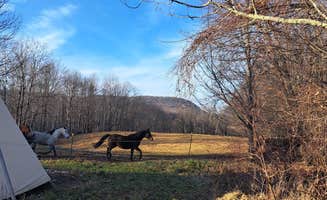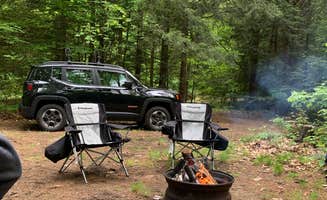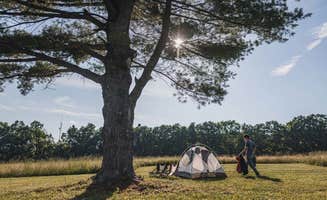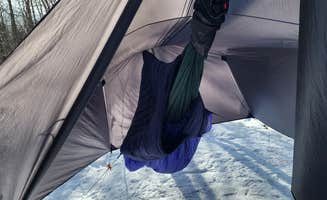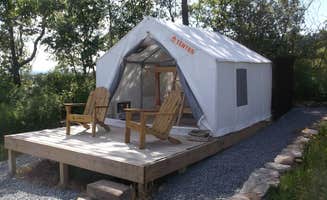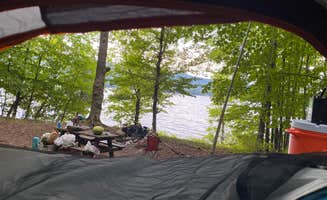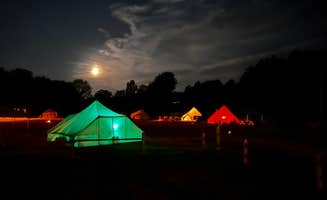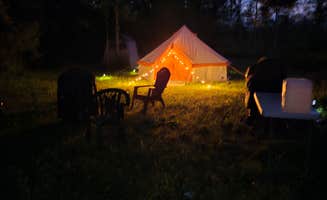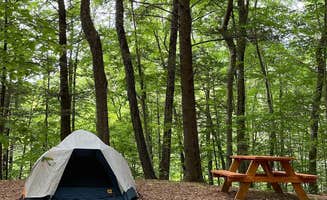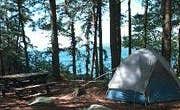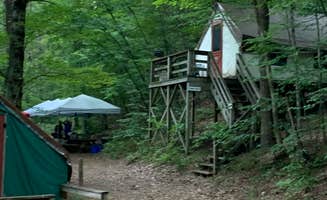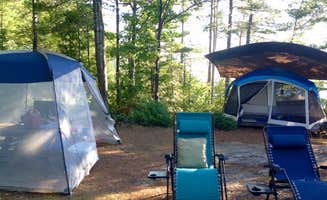Dispersed camping options near Stillwater, New York include several state forests and privately owned campgrounds within a 30-mile radius. The region features varying elevations between 400-1,000 feet with mixed hardwood forests and occasional wetland areas. Weather patterns typically include warm summers with average highs of 80°F and moderate humidity, making proper site selection important for comfort.
What to do
Bike-friendly trails: Ushers Road State Forest offers multiple trail systems suitable for mountain biking. The terrain varies depending on recent rainfall, with some trails transitioning to lower, swampier sections during wet periods.
Island camping: Long Island Group — Lake George Islands provides boat-access camping with unique water-based activities. "Worth a trip from just about anywhere. Absolutely beautiful and you can't beat camping on an island," notes camper T K.
Winter backpacking: For experienced winter campers, Stratton Pond Shelter offers cold-weather opportunities with significant preparation. "Spent the weekend here on the last weekend of Feb. 2024. Cold, Snow, Wind, full moon in the middle of the woods with only the people I hiked in with. It was great," reports Miccal M.
What campers like
Lake access: Campsites near water bodies provide swimming and fishing opportunities during summer months. "We had a great spot on Long Island! Beautiful view, chill atmosphere, easy boat parking on the slip," shares Anastasiia T. about Lake George Islands camping.
Family-run atmosphere: Smaller campgrounds offer personal attention and quieter surroundings than larger facilities. At Stony Creek Family Campground, Elizabeth P. notes, "It's a nice family ran campground. We love it here and plan to come back!"
Trail connectivity: Multiple camping areas connect directly to hiking networks, allowing extended exploration. Stratton Pond Shelter sits "at the intersection of AT, LT and Stratton Mountain trail" and features "one of the largest bodies of water on the Long Trail," according to visitor reports.
What you should know
Raccoon activity: Wildlife encounters are common at certain campgrounds, requiring proper food storage. Ryan observed at Long Island Group camping: "The raccoon situation was bad. We were literally bombarded with a group of raccoons each night."
Variable site conditions: Campsite quality and maintenance differ significantly between locations. Some island sites have "no leveled space whatsoever" with platforms for single tents only, making additional tent setup challenging.
Shelter availability: For those hiking to backcountry sites like Seth Warner Shelter, capacity may be limited. A reviewer advises, "IF you arrive late and there is no more room in the shelter use your tent or hammock in one of the many flat perfect spots for either."
Tips for camping with families
Accessibility considerations: Some of the best tent camping near Stillwater, New York requires boat access or hiking, which may challenge families with young children. Boat-access sites like Long Island Group require watercraft rental or ownership.
Bathroom situation: Many primitive camping areas lack developed facilities. Seth Warner Shelter offers basic toilets, while Daniel S. notes the area requires proper bear awareness: "Hang your food! Watch for bears and coons."
Water sources: For multi-day camping trips, water availability varies by location. Bring sufficient drinking water for at least 24 hours, particularly at sites without designated potable water sources.
Tips from RVers
Limited RV options: Most dispersed camping near Stillwater accommodates tent camping only, with few suitable for RVs larger than small campervans. Designated RV campgrounds offer more amenities but less seclusion.
Hookup availability: Among campgrounds that do accept RVs, electrical hookups are limited, typically offering 30-amp service rather than 50-amp. Come prepared with adapters and conservation strategies for extended stays.
Access challenges: Many forest roads leading to the best tent camping near Stillwater, New York feature unpaved sections with occasional ruts or narrow passages, particularly after rainfall. Scout access routes before bringing larger vehicles.


